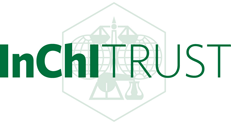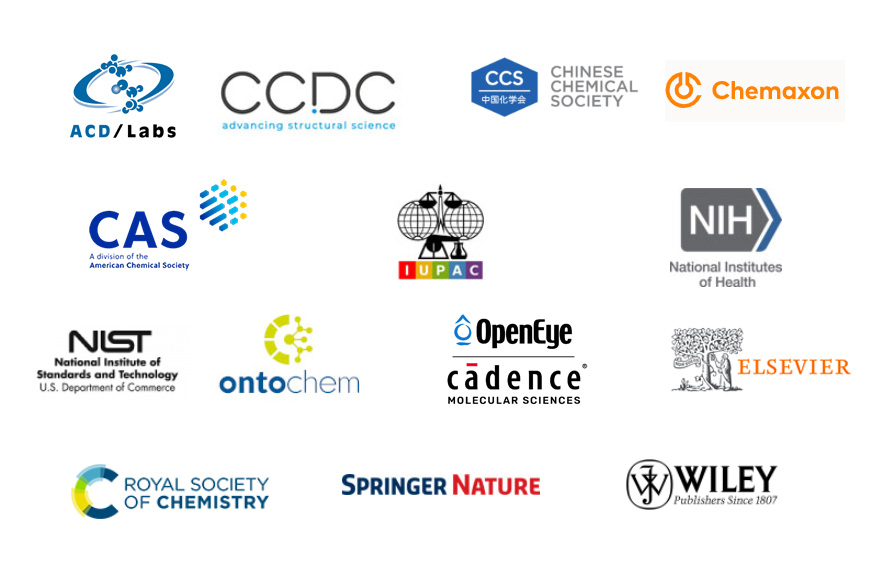About the InChI Trust
The InChI Trust is a nonprofit UK charity which works to implement and promote the use of the IUPAC InChI open-source chemical structure representation algorithm. The InChI with its associated InChIKey was developed as a non-proprietary international standard to represent chemical structures; the Trust aims to support the development and improve on the current InChI standard, further enabling the interlinking of chemistry and chemical structures on the web.
The charitable objects of the InChI Trust are the advancement of science for the public benefit, in particular by:
- Developing, reviewing and disseminating the internationally agreed standard representation, the IUPAC InChI, of defined chemical structure and their links to related information;
- Developing an organisational framework for implementation of and compliance with such codes of practice;
- Contributing to the use and understanding of chemical structure standards and related information
Interested in joining the Trust? See here
Our current members and associates
Full members:
- CAS/American Chemical Society
- Chinese Chemical Society
- IUPAC
- NIH
- Elsevier/RELX
- Royal Society of Chemistry
- Springer Nature
- Wiley
Associate members:
InChI Supporters
- AKos Consulting and Solutions
- American Chemical Society Division of Chemical Information (CINF)
- Biochemfusion ApS
- Caltech Library Services, Pasadena, CA, USA
- Cambridge Crystallographic Data Centre
- Centre for Molecular Informatics, Cambridge University, UK
- Chemistry Department, Clemson University, SC, USA
- Chemistry Department, University of Arkansas at Little Rock
- Chemistry Department, University of California, Riverside, CA, USA
- Computational Drug Design Systems LLC (CODDES)
- eADMET GmbH
- Eshelman School of Pharmacy, University of North Carolina at Chapel Hill, NC, USA
- ETH Zürich, Chemistry Biology Pharmacy Information Center, Switzerland
- Faculty of Science, University of Paderborn, Germany
- Gesellschaft Deutscher Chemiker e.V. (GDCh), Germany
- Gregory M. Banik
- Guide to Pharmacology, UK
- Imperial College London, UK
- Institute for Cheminformatics and Bioinformatics, University of Applied Sciences Gelsenkirchen, Recklinghausen Section, Germany
- Institute of Chemical Technology, Prague, Czech Republic
- Institute of Organic Chemistry, KIT Karlsruhe
- International Union of Crystallography
- Leadscope, Columbus, OH, USA
- Leibniz-Institut für Analytische Wissenschaften – ISAS, Dortmund, Germany
- Ludwig-Maximilians-Universität München, Munich, Germany
- Molecular Materials Informatics, Inc
- Mcule, Inc
- National Center for Biomedical Ontology, Stanford University, CA, USA
- National Chemical Laboratory, Pune, India
- NextMove Software, Cambridge, UK
- Open Babel
- RJB Computational Modeling LLC
- Royal Netherlands Chemical Society
- School of Chemistry, University of Leeds, UK
- SciencePoint, Redmond, WA, USA
- Scientific Thinking, LLC
- Sociedad Cubana de Química, Cuba
- StructurePendium Technologies GmbH
- Taylor & Francis
- Technical University of Vienna, Austria
- The Chem21 Group, Inc., Lake Forest, IL, USA
- The Chemistry Development Kit, Eindhoven, The Netherlands
- Trinity University, San Antonio, TX, USA
- TW2Informatics Limited
- University of California, Davis, Genome Center, CA, USA
- University of Indiana, Bloomington, IN, USA
- University of Primorska, FAMNIT, Koper, Slovenia
- University of Southampton (Chemistry), UK
- University of the West Indies, Mona Campus, Jamaica
- US Association of Public Health Laboratories
- Xemistry GmbH, Königstein, Germany
- ZINC
Our Board of Directors are also the Trustees of the charity:
- Ray Boucher (2010-; Chair 2017-)
- Ian Bruno (Company Secretary) (2018-)
- Pieder Caduff (Elsevier) (2021-)
- Dawn George (ACS/CAS) (2024-)
- Richard Hartshorn (IUPAC) (2013-)
- Sonja Herres-Pawlis (RWTH Aachen) (2024-)
- Richard Kidd (Royal Society of Chemistry; Treasurer) (2010-)
- Anne Nijs (Wiley) (2024-)
- Wendy Patterson (Beilstein-Institut) (2024-)
- Steffen Pauly (Springer Nature) (2017-)
Our relationship with IUPAC is described here.
Our annual reports can be read at the Charities Commission site here.


